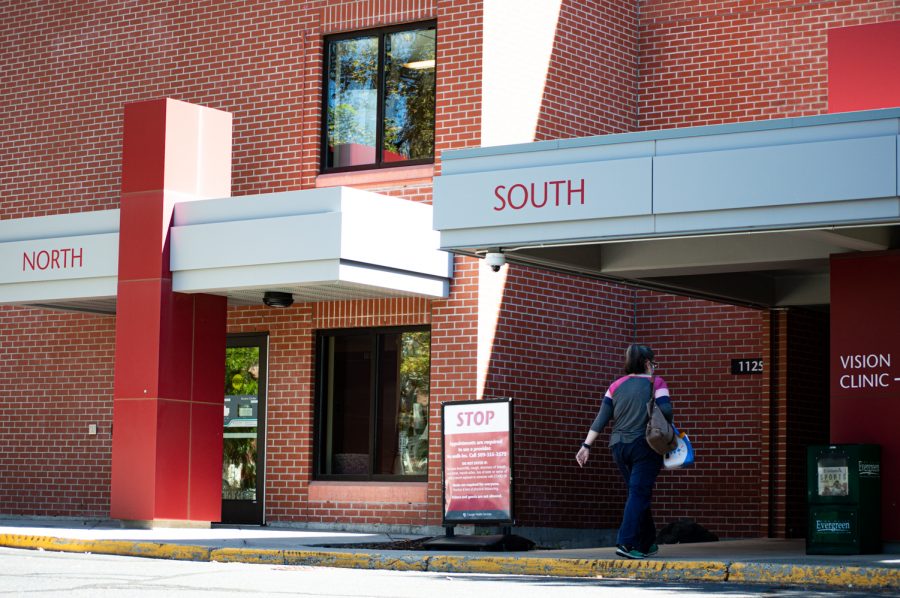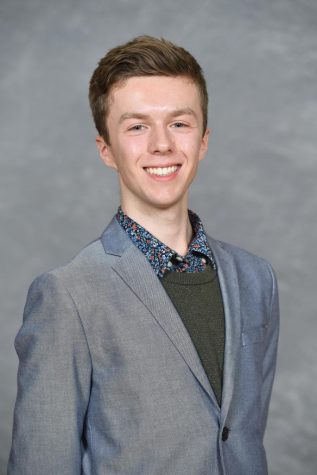Psychology Clinic, CAPS work with community to improve mental health
CAPS offers individual, group therapy, workshops; psychology clinic works with community, students
CAPS sees roughly 2,000 students every year, or 10 percent of WSU Pullman’s student population.
September 15, 2021
The WSU Psychology Clinic and Counseling and Psychological Services offer many mental health resources to students and members of the community.
CAPS sees roughly 2,000 students every year, or 10 percent of WSU Pullman’s student population, said Loren Brown, CAPS associate director and clinical director.
Anxiety, depression and feelings of stress with academics are the three most common reasons students seek help through CAPS each year, he said.
Generally, CAPS stays busy through the fall and spring semesters, Brown said. Practitioners often notice an increase in students seeking services during Week of Welcome, after midterms and approaching finals week.
College is an important time for young people because of all the changes they are experiencing, he said.
“There’s so much going on around development and identity exploration and relationships; there’s just so much that I find really crucial,” Brown said.
Brown works as an administrator and clinician for CAPS. As clinical director, he coordinates the delivery of clinical services, makes sure CAPS is functioning smoothly and helps make adjustments to the program depending on data and statistics from students, he said.
He said first took an interest in psychology in high school after he checked out a psychology textbook from his library.
“I had a desire to work with people, and to be able to help people who were experiencing some forms of distress or suffering,” he said.
He said also finds it interesting to try to understand people’s experiences, what they are thinking and feeling, and provide them with evidence-based solutions to their needs.
Brown said he is particularly interested in LGBTQ+ identity development and group therapy.
Students are often initially hesitant about group therapy, but many report they are glad they participated and would recommend it to a friend, Brown said.
“In a group, you have a chance to hear about how other people have gone through similar things and that can help people feel less alone,” he said.
Group therapy can be encouraging because students can practice social interactions in a safe environment and get feedback from their peers, Brown said.
CAPS also holds workshops to develop skills for problems they experience, he said. Students learn tips for things like stress management in a group setting. This can be more efficient than one-on-one teaching.
Some workshops are considered “inside” CAPS where students must go through an initial consultation and are referred to the workshop. Other outreach programs and workshops like Real Talk Thursdays welcome all students, Brown said.
Doctoral students at CAPS have also gone on to do practicum work and training with the WSU Psychology Clinic, he said. Both organizations try to stay in regular contact and provide feedback for each other.
CAPS and the Psychology Clinic are both available on campus, but each works differently, said Cornelia “Connie” Kirchhoff, clinical assistant professor and Psychology Clinic associate director.
Patients with certain needs will sometimes be referred between CAPS and the clinic, she said.
Kirchhoff debated between a career in psychology and becoming a teacher, but eventually grew to love psychology. One area she focuses on is personality.
“I’m very interested [in] how personality factors influence psychological presentations, generally, and then also how they develop,” Kirchhoff said.
Genetics, childhood experiences and cultural factors all influence how personality develops, she said.
Kirchhoff said she teaches a personality assessment and diagnosis class with doctoral students, as well as a clinical skills class.
The clinic is a training ground for psychologists. Students are taught both the research side of psychology and the clinical side, she said.
The clinic typically has several hundred applicants for the teaching program every year, but only eight are accepted. These students are usually in their third year pursuing their clinical psychology doctorate, Kirchhoff said.
On top of teaching and working with her handful of clients, Kirchhoff said she spends much of her time working to make sure the clinic functions smoothly.
The beginning of the academic year and end of each semester are often the busiest times for the clinic because the doctoral students are getting settled into their positions, she said.
There is never a time of year when client numbers increase or decrease notably because the clinic works directly with the public to provide mental health services, Kirchhoff said. Students can seek help and be referred to the clinic, but costs are not covered by the student medical fee.
The clinic offers a wide range of services, including psychotherapy and psychological assessments. Providers perform assessments for ADHD, autism spectrum disorder, issues relating to traumatic brain injuries as well as other evaluations, she said.
While most of the ADHD assessments are performed on children, WSU students experiencing trouble in school have also sought evaluation through the clinic, Kirchhoff said.
Breakthroughs and positive impacts on therapy clients and seeing students move on and succeed are some of the most rewarding parts of her job, she said.
WSU Pullman has around 1,100 active duty or veteran students, said Penny Martinez, Pullman Office of Veteran Affairs coordinator.
Veterans Affairs works with the clinic to treat members for PTSD and help with adjustment to civilian life, Kirchhoff said.
“They give us a lot of wiggle room so people don’t have to just be coming back. But if they struggle and it’s not necessarily PTSD we can still see them over the contract,” she said. “It’s nice that they’re flexible.”
The clinic also has a contract with the Washington State Department of Social and Health Services. They perform assessments to determine if people are eligible for the department’s services, she said.
If someone is unsure if they should seek help or they are interested in it, they should reach out, she said.
Call 509-335-4511 to schedule a same-day consultation with CAPS or 509-335-3587 to schedule an appointment at the Psychology Clinic.











